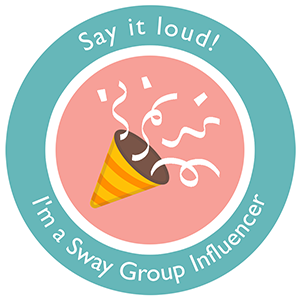This week’s Monday Motivation is to prepare yourself for those tween and teen years. I was naive in thinking that the teen years would be a breeze. I thought that because we were a Christian family we wouldn’t have the issues that I remember happening with my sisters and I. HA! Guess what? We do. Each stage of our children’s life has its struggles, some easier, some just as challenging as the stage before. There is no easy age per se, each age is different, as is each child. In five years we will have five teenagers in the house and I want to be prepared. Erin says it so much better than I could, so here is her top 20 tips for parenting or preparing to parent your tweens and teens. Remember to come back to this often because you forget and you will need these reminders, believe me.
One other thing, be sure to clear your schedule as much as you can because these young people need just as much time, if not more than your babies, toddlers and preschoolers! Amazing, I know. Then love, love and love them some more! And pray fervently for them.
The Top 20 Tips for Parenting “Transitioning Tweens”
By Erin Brown Conroy, M.A.
I heard it again . . . A few days ago . . . . That comment about “tweens.” You know, “tweens” – that’s the word that refers to kids in the awkward age and stage: when our child’s stuck somewhere between being a “child” and a “teen.” The “official” time of “tween” can fall anywhere between the ages 10 and 14, depending on when puberty comes knocking – or pounding – on your child’s hormonal door.
Lamenting about her soon-to-be-a-teen daughter, my friend said (with a sigh of desperation), “I don’t know what’s happening! It seems like I woke up one day and my daughter was an emotionally-charged being. She argues, she’s sassy, then she’s silly . . . and then she’s hugging me and telling me ‘I love you so much, mom!’ Where did my sweet little child go?”
Life as we know it has changed…
No, an alien didn’t abduct your child when you weren’t looking. Your son or daughter’s brain and body is now invaded by chemical changes that mark the start of puberty. With the hormonal “wash,” lo and behold, your child is temporarily rendered into a “mecentered” state of consciousness. Congratulations! Your child’s officially transitioning from a child into an adult.
There’s a new road up ahead. The parenting road that may have been relatively smooth now enters new terrain. Bumpy terrain. With roads that twist and turn and seem to drop off into oblivion.
Yes, just when we thought we had the parenting thing figured out, our child becomes a tween (and then a teen). God definitely has a sense of humor.
The Top 20 Tips
Don’t fear or fret – This stage does end some day (Wahoo!), and it’s much sooner than we think. In the meantime, here are the Top 20 Tips for making the journey through the tween (and teen) years as smooth as they can be.
1. Hormones may rule the child, but they don’t have to rule you or your home. As the parent, you’re ultimately the one who sets the tone of your home. No matter what your tween or teen says or does, know and live the fact that you are calm, cool, collected, and “with it.” When life with your child’s behavior gets tough, know that you’ll find answers. Know that you’ll stay strong through it all and come out strong on the other side. Be confident and centered – and don’t be afraid to ask for help from others. Resources strengthen you personally and as a family. Take advantage of as many resources as you can.
2. Don’t panic – Teach. Things will happen and things will be said that shock you. Be ready for it. Your gut response might be, “How could my son say that? How could my daughter act that way? I can’t believe it!” Believe it. And don’t let it shake you one bit. Like a willow tree, be firmly rooted, able to bend and stay supple in the gales that come your way. Once the wind has died down, stand up tall and calm, and use the moment to teach your child the good, right, helpful, and kind way to speak and act. Keep in mind, as your child moves though these changes into adulthood, it’s your job to teach the best way to speak and act. Here’s where it begins. With you and me.
3. Don’t take it personally. Emotionally chill. OK – So your child’s going to say and do some pretty outrageous things. Don’t take it personally. “What?! Don’t take it personally” you say? Of all the tips on this page, this particular one is the hardest to do. After all, I’ve wiped this child’s bottom and changed her diaper, potty trained her, taught her to read, driven her to sports and birthday parties and stores, and spent hours upon hours caring for and spending time with and loving her – and here she is spouting off that I don’t know anything and I don’t really care about her. Pretty illogical, isn’t it? Step back. Take a breath. Emotionally chill. Don’t take it personally. The hormones are at it again. Don’t let it phase you.
4. Know that the word “I” will be in just about every sentence your child uses. When you’re a tween, an amazing change happens in thoughts and speech. The tween’s “world view” morphs into “me-centeredness.” It’s all about “me.” Well, not all the time. But a lot of the time. As a tween and teen, life revolves around my thoughts, my ideas, and my desires. Again, it’s chemical. Really. Normal brain development stuff. Don’t let it get you all bent out of shape. As the parent, understand the perspective and gently help your child re-orient to thinking in a “big picture view” that includes others.
5. Understand your changing role and step into it. Your role’s changing. Dramatically. Sometimes daily. When your child was a baby, your role was to totally care for his or her life. When your child grew, your role was to tell and guide, as well as to direct. When your child becomes a tween, your role changes again. As you “let the rope out,” you’re teaching and listening and watching over, as opposed to directly overseeing. You’re mentoring now. Side by side. Still teaching. But talking through, describing, and asking questions. Don’t assume your child knows what you’re asking. Check for understanding. Step into your role graciously.
6. Keep firm boundaries. Tweens and teens still need firm boundaries for behavior. In love and kindness, we need to clearly define expectations and consequences – and follow through. Our child will test the boundaries. Sometimes it will be unintentional; sometimes it will be intentional. No matter; our response is the same. I love you. I care for you. I’m setting guidelines out of that love and care. From curfews to kind behavior toward others, keep the boundaries firm and expectations high. Then follow through.
7. Don’t accept “poor tone.” At some time, your child’s tone of voice will be out of bounds. Obnoxious. Even “snotty.” Some children try it once. Others seem to struggle with using poor tone more often. Tell your son or daughter that, no matter what their feelings (sadness, anger, disappointment), we still speak to each other with respect – in both our word choices and the tone of our words. Hold your child to speaking with a respectful tone, with a calm request. If your child doesn’t change his or her tone, give a consequence that matches the violation. And tell your child you’ll speak to him/her when they’re able to speak back in a tone that’s respectful.
8. Expect and hold your child to “good eye contact.” Eye contact is important – for you and your child’s relationship, as well as your child’s future success. Ask for sustained eye contact. Expect it. If your son or daughter “forgets,” gently step into your son or daughter’s line of vision and ask him or her to maintain eye contact – each and every time. Rolling of the eyes isn’t accepted (it’s disrespectful). Teach your son or daughter the importance of a steady gaze (not glare) of meeting eyes with another. Hold your child to it.
9. Purposefully talk through and model good behavior. Every issue that comes your way is a chance to purposefully talk through and model the good, right, and helpful way to respond to life and its issues. Be purposeful about your interaction. Look directly at your child; face his or her body with your own attentiveness and eye contact. Model the behavior you want your child to exhibit – both now and all throughout life.
10. Spend time together doing things your child likes to do. Now’s the time to spend time with your child. Your child will “disappear” into his or her room for longer periods of time than he or she used to. This new level of “quiet” might seem nice at the moment, but don’t let it fool you; it’s time to make time with your son or daughter. It’s time to ask him or her what he or she’d like to do. Even if the activity’s not what you’d choose, it’s time to bend their way a bit and enjoy their activity. When it comes to maintaining a good relationship with your tween and teen, spending time in your child’s chosen activity is, as they say, huge.
11. Create times to talk on a regular basis, and talk when your child wants to talk. Your child may not come to you to talk. Your child probably won’t come to you to talk. You’ll need to go to your child and ask your child for times to talk. Better yet, you’ll create special times and special situations where your son or daughter feels comfortable talking with you (like going together to his or her favorite ice cream shop). And then there will be those terribly inopportune times when your child wants to talk to you. You know the times: It’s when you’re tired and you want to go to bed, or when you have to make an important phone call (and you’re dialing) and your child comes up to you with that puppy dog look and tears in his eyes and says, “Can I talk to you right now?” If at all possible, change your plans and talk to your child. If you can’t, set a time to talk right then and there. It’s that important.
12. Give time for quiet, but also draw them out of the quiet. As we said in Tip Number 10, “Your child will “disappear” into his or her room for longer periods of time than he or she used to.” A certain amount of quiet, contemplative time is normal for a tween or teen – but it’s to a point. Check regularly on your son or daughter. Withdrawal for long periods of time may be a sign of depression, anxiety, use of tobacco, drugs, or alcohol, change of behavior attached to bulimia or anorexia, obsessions, and many other physical and emotional causes that need attention. Or your child may just need someone to encourage him or her to talk and become involved. Be wise. Allow for quiet and alone times, but be aware of the amount of time alone. Teach your child to balance quiet times with healthy interaction.
13. In conversation, be a facilitator. A facilitator doesn’t preach. Or tell. Or direct. He or she asks questions. A facilitator shows options and asks for the pros and cons of the situation. A facilitator asks, “What would be best thing to do? Why?” A facilitator leads the audience to conclusions, making the participants feel like it was “their idea.” Teach decision making skills by leading your child to ideas, options, and conclusions. Facilitate. In this way, your son or daughter will learn to step out on his or her own with clear thought processes and good decision making skills, because he or she has practiced thinking through events and drawing correct conclusions .
14. Give a choice within the desired activity. There are certain “givens” in life. It’s a “given” that your son needs to wear an outer garment outside when it’s cold. But you can give him the choice of wearing a hooded sweatshirt or a jacket. In the same way, it’s a “given” that your daughter needs to put her dirty laundry in the basket and not all over the hallway floor. You can give your daughter the choice of keeping the basket in the hallway, the bedroom, or the bathroom (whichever she deems “easiest,” with the shortest distance to toss the clothes after taking them off). A tween loves choices. Give a choice within the desired activity.
15. Draw only necessary “lines in the sand.” What are the most important line to draw? Values-based lines. Those lines stay the same. All other lines…Well, think about it. Some are necessary. Maybe some others aren’t. Now’s the time to think deeply about those lines we draw and decide which ones are “preference based” (just what we personally like) and which ones are “non-negotiables.” Draw your lines carefully, when necessary.
16. Purposefully teach decision making skills. The most important ability you’ll give your child is the ability to make good decisions. How do we make decisions? We think and talk through the “whys” behind our choices. We weigh out the good and the bad. We put values on our reasons. We discuss, ponder, ask for advice, weigh advice, and, in the end, balance logic and “heart.” Purposefully take your tween and teen through these steps, and they’ll be able to make good decisions as adults.
17. Talk about “The Big Five”: Love, Sex, Money, Politics, and Religion. When I was a tween and teen (in the 70’s), we didn’t talk about “The Big Five.” These days are different. It’s time to talk about these “real issues” in honest, straightforward ways – in order for our kids to be wise and make good choices. As your tween becomes aware of issues, talk in small amounts that grow to large conversations. Create conversation that’s meaningful and thought-provoking. Ask questions. Give information that’s appropriate, in small, “digestible pieces” that your tween can easily ponder. Don’t avoid “hard issues.” When it comes to the most meaningful discussions, teach your child that you’re the one he or she can come to by discussing “The Big Five.”
18. Be involved in your tween’s life. If your child’s just trying out volleyball, go to the practices and games. If pipe organs of Eastern Europe trip his trigger, read a book about them and go to a concert together. If the movie of the day is “Princess Diaries 2,” and girly Disney movies just don’t thrill you, so what? Go to the movie together. Enjoy it for her sake. Make your son or daughter’s interests your own. Be involved. Drive the car pool. Go to the meeting. Watch the practice. Look over the homework. Ask about the friends. Meet your sons’ and daughters’ friends’ parents. Find out what’s important to your child, and make the connection. In a few years, when you’re in the toughest part of parenting your teen and there’s a point of connection, you’ll be glad you took the time.
19. Laugh together. Laughter sooths the soul and builds bridges with your tween. Tweens are notorious for what my girls call “silly humor” and my boys call “stupid humor.” Some tween humor’s “out of bounds” and other humor’s truly side-splitting silliness. Without lowering yourself to poor humor such as obsessing with bodily functions like passing gas (a famous past time of tween boys), find silly things to laugh about. I call it “healthy, happy humor” – humor that doesn’t make fun of others, doesn’t put people down in sarcasm, and makes us laugh at ourselves in a way that builds closeness. There’s plenty of fun to be had in healthy, happy humor. Share a good serving with your tween daily.
20. Voice the obvious and do the obvious. Say, “I love you. I want to spend time with you. You’re such a gift to me. I’m glad you’re my son (or daughter). I like being with you. You did that well. I’m proud of you. I’m looking forward to spending time together. I’m glad we had this time together.” There are so many times we think these things and don’t say them. Well, now’s the time to say them! And DO things that show these feelings: Put your arm around a shoulder. Give a hug and kiss. Toss the ball, shoot some hoops, take a walk together, eat out together, ride in the car on a trip designed just for the two of you and talk. Amidst all their bravado of “growing up,” at each child’s very core, these tweens and teens need our love and affirmation at this time more than any other time in their lives. Think it. Then say it and do it. Daily. Repeatedly. With sincerity and authenticity. From the heart. Wrap up the first 19 Tips with Tip Number 20, and you’ll boost the effectiveness of every single Tip before it – ten fold!
Take the time to learn about the tween and teen years, practice these 20 Tips, and parenting your child will be a whole lot easier and more enjoyable, as your child becomes a responsible, responsive adult that you’re proud of.
About Author
Erin Brown Conroy, MA, is a writer specializing in books on relationship connections, curriculum, and web marketing. She is a freelance writer/consultant, the DL Professor of writing courses for Patrick Henry College, and a Master Teacher for the PHC Prep Academy Online. Erin is also the mom of 13 children by birth, marriage, and adoption and has been homeschooling for 27 years. She lives in Ohio with her husband, five children still at home, and three amazingly-smart (and cuddly) Australian Labradoodles. You can read more of Erin’s articles on parenting at www.erinbrownconroy.com.
Used with Permission.





























